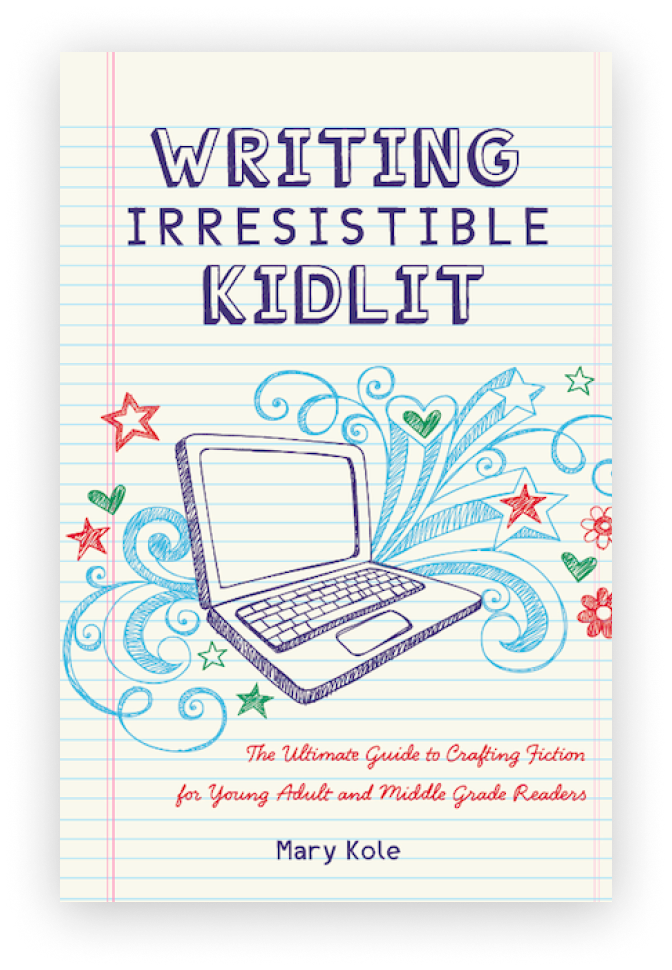How to Become Self-Published
By Mary Kole
Mary Kole is a former literary agent, freelance editor, writing teacher, author of Writing Irresistible Kidlit, and IP developer for major publishers, with over a decade in the publishing industry.
Gone are the days when self-published authors were stigmatized, and self-publishing was seen as the last resort of writers who couldn't cut it in traditional publishing. Today, self-publishing has become a viable option for many aspiring authors who want to carve their niche in the literary world, on their terms. However, writing and publishing a book is just the first step of having an actual self-publishing career. The real challenge lies in book marketing and growing your readership. As an expert on writing and publishing, I have compiled this guide to help self-published writers succeed in the industry. So, if you're ready to take your writing career to the next level, strap in as we explore the tips and tricks for thriving in the self-publishing world.
Quality Matters, Even When You’re Self-Published
As a self-published writer, your brand rests on the quality of your work. Self-publishing is not an easy workaround if a publishing gatekeeper has rejected you. You need to work, strategize, and make sure you’re turning out a good story, or else readers will check out the millions of other books on shelves. Therefore, it's crucial to keep a rigorous eye on quality when working on your manuscript. Before you hit the “publish” button, take the time to revise, edit, and proofread your work exhaustively. You can also work with qualified freelance editors, illustrators, and book designers to help you create a professional-looking book. Yes, these specialized services cost money, but the investment is often worth it, especially if you’re the last set of eyes on a project before it goes out into the world. Remember, the first impression you make on your readers can make or break your writing career.
Self-Published Writers Write to Market
Writing to market means understanding what your target audience wants, and playing on their preferences to craft stories that resonate with them. The practice of understanding your category and genre is especially important when you’re self-published. It's essential to use relevant tropes and themes that your readers will find familiar and engaging to hook them into your book. Researching your readers' demographics and reading habits can help you tailor your story to cater to their preferences. Writing to market not only helps you connect with your readers but also increases your chances of gaining new ones.
Build Your Self-Published Brand
As a self-published writer, your author brand is your identity in the industry. Therefore, it's essential to build a brand that resonates with your readers. Consider building an author website, creating social media for writers profiles, and networking with other authors and readers at virtual and in-person events like writer’s conferences. Additionally, you can create a unique author voice and writing style that sets you apart from other writers, making readers more likely to seek out your work.
Marketing Is Key When You’re Self-Published
Marketing is the engine that drives self-publishing success. You can have the most compelling story ever written, but without effective book promotion, you won't reach your target audience. Start by developing a comprehensive marketing plan that includes promotions, lead magnets, advertising, and social media campaigns to introduce your book to the world. Be creative and experiment with different marketing strategies to see what works best for you. Remember, marketing can be challenging and time-consuming, but it's a necessary part of the self-published process.
In conclusion, self-publishing isn't just an alternative to traditional publishing—it's a thriving industry in its own right, and the tools and strategies available have never been better. Aspiring writers can now bypass the traditional publishing gatekeepers and build their writing careers on their terms. However, success as a self-published author requires more than writing and publishing a book. You need to market and grow your readership, build a compelling author brand, and write to market to succeed. While it's true that self-publishing can be challenging, with the right tools and strategies, anyone can build a career that fulfills their writing dreams. With hard work, dedication, and a bit of luck, self-publishing success can be yours.

Click here to purchase Writing Irresistible Kidlit, my book on fiction craft for MG and YA novels, out from Writer's Digest Books. This will show you my writing craft philosophy and give you lots of valuable advice, including tips for the novel revision process and self-editing. There are over 35 example novels cited and discussed throughout. It’s a valuable resource for any writer’s toolkit.
Click here to purchase Irresistible Query Letters, my book on query letters, including over forty examples with comprehensive notes on each one. There’s a ton of submission advice, best practices, and insider information in these pages, and you’ll really enjoy seeing what other writers are doing in the slush.
Click here to purchase Writing Interiority: Crafting Irresistible Characters, my book on interiority and character creation. Explore your protagonist’s thoughts, feelings, reactions and interpretations, expectations, and inner struggles to create a rich, immersive experience. This guide will empower you to create characters who live and breathe on the page, fostering an unbreakable bond with your audience.





